Cities of Russia. Barnaul
History of Barnaul
The city of Barnaul, the administrative center of the Altai Territory, is located in the forest-steppe zone of the West Siberian Plain, in the north-east of the Priobsky Plateau, in the upper course of the Ob River on its left bank. To Moscow from Barnaul - 3419 km (3 hours 50 minutes by plane, 2 days and 9 hours by train). By geographical latitude Barnaul is located in the same place as Hamburg, Dublin, Liverpool, Minsk and Samara, in the time zone of the Omsk Time Zone (relative to Moscow, the offset is 4 hours).

The history of Barnaul goes back to ancient times: judging by archaeological excavations, the first settlements on the territory of the city were still in the Stone Age. And in the Horde era, before the appearance of Russians in Siberia, there was a fortress town of Abaksh, from where the Teleuts made regular raids on their neighbors.
In 1730 Akinfiy Demidov, a mining company, brought farmers to the Altai to set up factories, and they organized the first settlements, and nine years later the construction of a honey-silver smelter began, new settlers and servicemen arrived and the city began to grow.
After the abolition of serfdom and a significant depletion of natural resources, mining production fell into decay and the Barnaul plant had to close. But the city did not disappear, but quickly changed its production orientation and became a major trade center specializing in agricultural products (grain, butter, cheese).
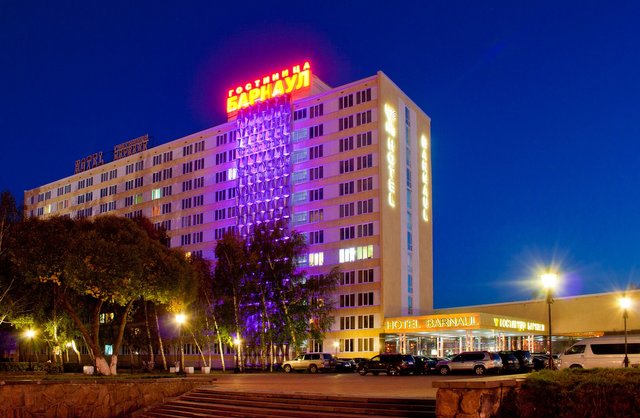
During the Great Patriotic War, about one hundred industrial enterprises from Moscow, Leningrad, Odessa and other cities were located in Barnaul, the rapid development of the machine-building and chemical industries began. During these years the city finally grew and acquired modern features.
Climate and ecology
The climate in Barnaul is continental, characterized by a hot summer, a stably frosty winter and a small amount of precipitation. At the same time, weather conditions in the city can be quite contrasting - this is due to the arrival of different-temperature air masses from the Altai Mountains, the Arctic Ocean and semi-desert regions of Central Asia. The coldest month of the year is January (the average temperature is -17.5 ° C), the warmest is July (+19.8 ° C). Relative humidity in the cold season varies between 73-76%, and in the warm period is about 62%. The winds are mainly southwestern, western and southern. In Barnaul, there are rarely cloudy and gloomy days: most of them fall in autumn, and in the rest of the year, as a rule, it is clear and sunny.
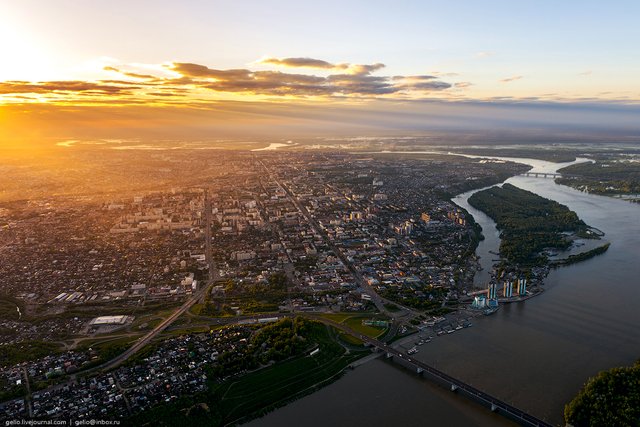
Barnaul is a very green city, with a lot of artificial plantings - avenues, parks, squares, boulevards, and from the south-west surrounded by ribbon boron.
The pride and place of the regular "natural" march-throw of Barnaul is the arboretum NIISS them. M.A. Lisavenko, on 10 hectares of the territory of which grow trees and shrubs about a thousand species, hybrids, varieties and forms.
But, like any large industrial center, Barnaul can not be called an environmentally friendly city. The main sources of air pollution are industrial enterprises, furnace heating private sector, as well as vehicles. This is especially true of the northern part of the city (Leninsky and Oktyabrsky districts), where the largest industrial enterprises are concentrated, as well as the southern part of the city (Central district) near the mouth of the Pivovarki River near the Altai plant of aggregates, where an unfavorable ecological situation has also formed.
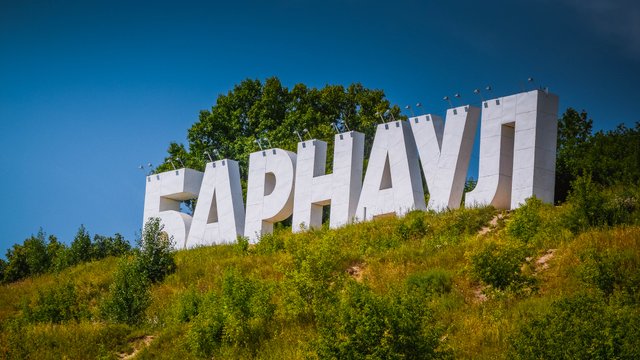
Pollution of surface waters of Barnaul-Ob River and Barnaulka-is carried out through the discharge of untreated sewage by the city's enterprises. Over the past decade, the responsibility for the purity of the native city has increased significantly among the population of Barnaul. This is proven by regular actions to clean streets, parks and ponds, organize green spaces and other events.
Population
The population of Barnaul is 633 thousand people (at the beginning of 2014), of which the female population exceeds the male population (55% and 45%). About this, by the way, like to joke lonely lonely residents of Barnaul: "Want to get married, go to another city." But the difference is really small, and there is no such a Friday in the year that the streets of Barnaul did not pass wedding decorated cars.
The population of the working age of Barnaul is about 67%, a large percentage of young people and students. Despite the constant outflow of population from the city (mainly due to youth), the total population does not decrease. This is explained by the influx of migrants from the regions of the region (including students), as well as migrants from the republics of Central Asia. In Barnaul, more than 100 nationalities live: 89.5% of the population are Russians, the following in number - Germans (4.8%), Ukrainians (2.9%); all the rest - 2.8%.
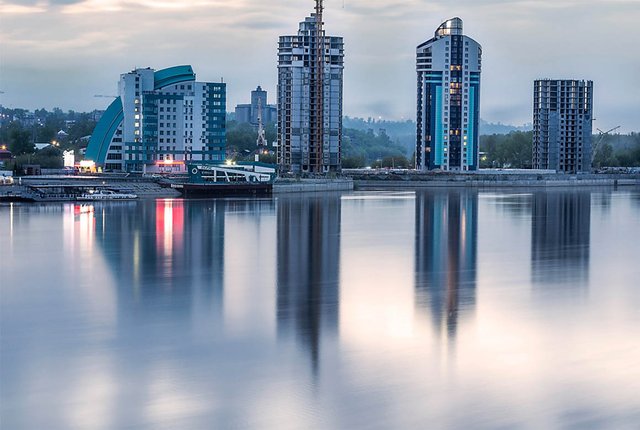
There are many religious communities in Barnaul. The largest is Orthodox, there are also Catholic, Lutheran, Muslim and Jewish communities. In 2006, the church of the Armenian Apostolic Church was consecrated: the Armenian Diaspora of the city numbers more than 15 thousand people. In addition, there are parishes and associations of various religious movements in Barnaul - Pentecostals, Evangelical Christians-Baptists, Seventh-day Adventists, Jehovah's Witnesses, the Church of Christ, the Society for Krishna Consciousness, etc. All of them peacefully coexist with each other: conflicts on religious grounds in Barnaul has not yet been observed.
What are they, Barnaulians? Here I want to quote Bulgakov's Woland: "Well, then, people like people. They love money, but it's always been so ... Well, frivolous ... well, well ... and mercy sometimes knocks on their hearts ... ordinary people ... in general, remind the old ... the apartment issue only spoiled them ... "
Let the Barnaulians reading these lines do not take offense at their quoted them. Well, who does not love money? But for them to be, the people of Barnaul work. In different spheres, not for a great salary, they know how to save money and know where, what prices, they make out a mortgage that they are obliged to pay off to a pension, but they manage to travel - let it be in affordable Turkey or Thailand, on a hot tour and not in the best hotel, but on a place do not sit. Are they frivolous? Well, perhaps a little, no more and no less than Astrakhanians or Volgogradians. And mercy to Barnaulians is not alien - news about the need for help is spread over social networks in a matter of hours - and help comes.
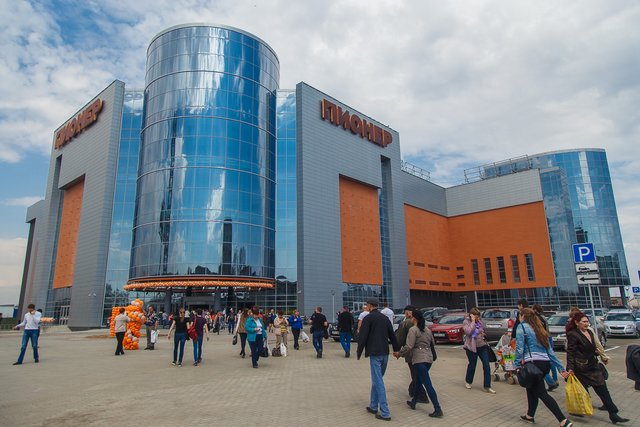
Barnaultsy friendly, and you can not be afraid to ask the time or the road for passers-by - they will answer and explain necessarily. And they have a kind indulgence for newcomers: "Well, live, and we will show and tell everything." The Altai Territory is an agrarian land, and therefore good by definition.
Thank you for this interesting post. The information is very useful, its seems Barnaul is an awesome city.
thank you)
beutiful city
yeah, amazing)
Congratulations! This post has been upvoted from the communal account, @minnowsupport, by Vik Frei from the Minnow Support Project. It's a witness project run by aggroed, ausbitbank, teamsteem, theprophet0, someguy123, neoxian, followbtcnews, and netuoso. The goal is to help Steemit grow by supporting Minnows. Please find us at the Peace, Abundance, and Liberty Network (PALnet) Discord Channel. It's a completely public and open space to all members of the Steemit community who voluntarily choose to be there.
If you would like to delegate to the Minnow Support Project you can do so by clicking on the following links: 50SP, 100SP, 250SP, 500SP, 1000SP, 5000SP.
Be sure to leave at least 50SP undelegated on your account.